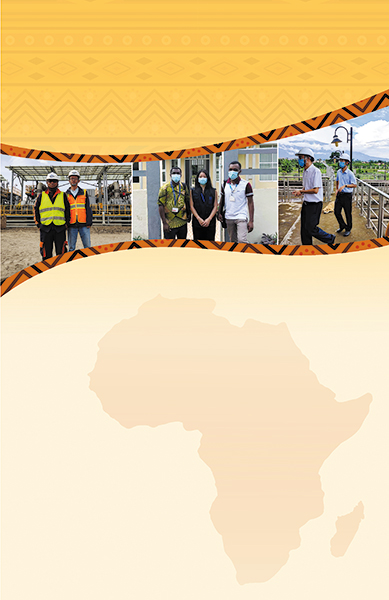Making a difference in Africa
Chinese professionals, working on diverse projects in Africa, share transformative experiences — improving infrastructure, health, and education — while fostering mutual respect and cultural exchange, shaping a brighter future for both continents, Li Xinran reports.


Africa is a continent that everyone knows about, but not many fully understand. "If you haven't been there yourself, you would never truly know what it's like," said 29-year-old Huang Siyuan.
From 2019 to 2022, Huang worked as a security engineer at a sewage treatment plant in the Republic of Equatorial Guinea. The project was contracted to and built by CGGC International.
Huang grew up and spent his academic life in Beijing. "If it weren't for this program, I might never have gone to Africa," he said. "I'm thankful that my company provided this platform for me to participate in international projects. It's a great opportunity for both personal and professional growth."
The Republic of Equatorial Guinea is in western Africa and has a population of a little over 1.6 million. The sewage treatment plant that Huang works for is in the capital, Malabo.
Recalling his first impression of Malabo, he said, "The city has a lot of greenery, with tons of mango and banana trees lining the roads. The infrastructure was more complete than I expected, with tall buildings and a well-connected transport network."
However, when Huang arrived as the new security engineer, the plant had already been in use for about four years. According to his colleagues, Malabo looked very different before the plant was built.
"I heard that locals used to dispose of their waste right in front of their doorsteps. Since mosquitoes breed in sewage water, the incidence of malaria in the local community was extremely high," Huang said.
So, with the sewage treatment plant, not only had the city's appearance been enhanced, but the health condition of the local people also improved.
According to Huang, the plant has a daily processing capacity of approximately 20,000 cubic meters of sewage water. They've also built a supporting pipeline network totaling over 240 kilometers, covering basically every household in Malabo.
"A survey done by the World Health Organization showed that after our plant was put into use, the city's incidence rate of malaria dropped from 45 percent to 11 percent," Huang explained.
Even if someone contracts malaria, including Huang himself, it's not a significant issue because of the availability of artemisinin. "The hospitals there also use artemisinin, which was discovered by the Chinese scientist Tu Youyou. Local people seek treatment as well since it's affordable," he said.
Huang and his colleagues conduct routine checkups and cleanups of sewage wells around the city. "You could say that our footsteps covered every inch of Malabo," he said.
Sometimes when Huang and his colleagues were fixing the wells, they would run into local residents, who would thank them for improving the local living environment. Some would even offer food and fruits, but Huang and his colleagues couldn't accept them. "We regard their gratitude as the most precious reward," he said.




































